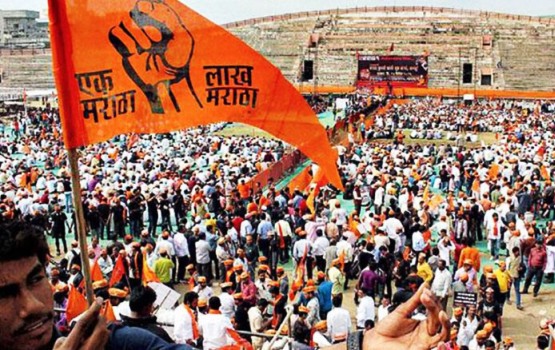Mahima
A constitutional bench comprising of Justices Ashok Bhushan, L Nageswara Rao, S Abdul Nazeer, Hemant Gupta and Ravindra Bhat is hearing the case of Jaishri Laxmanrao Patil v Chief Minister.
The petitions question the validity of Maharashtra State Reservation for Socially and Educationally Backward Classes (SEBC) Act after it extended a 16% reservation for the Maratha community.
The petitioners have argued that Maharashtra did not have the legislative competence to add Maratha community in the list of Socially and Economically Backward Classes after the 102nd Amendment of the Constitution of India.
Attorney General KK Venugopal stated, “when a specific direction is issued by a 9-judge bench, and the Government shows every indication of implementing it, is it conceivable that an Amendment to the Constitution will be made, by which States are denuded of the right to identify backward classes?’
He also maintained that the intention of 102nd Amendment was solely to cover the Central List and stated, “Rights of the States remain untouched ‘expressly’ and will continue. See Article 366; it says ‘unless the context otherwise requires’” as no attempt has been made to amend Article 15(4) and 16(4).
The constitutional bench agreed upon listening to all the States after the question of reconsidering Indra Sawhney Case surfaced which placed a 50% cap on reservation.
Senior Advocate Arvind Datar previously submitted on behalf of the petitioners that Articles 15 and 16 of the Indian Constitution which enables the States to make provision for reservations also intend at promoting equality and, “To change the 50% limit is to have a society not founded on equality, but based on caste”.
He also brought attention to 10.5% reservation for Vanniya Kula Kshatriyar in tamil Nadu, extension of OBC quota in Madhya Pradesh (2019) and inclusion of Nadar Christians in OBC category in Kerala (2014) and maintained that the 1992 verdict should not be revisited in the backdrop of ‘political considerations.’
The Bombay High Court upheld the Maratha quota but maintained that a 16% reservation is not justifiable and that it should not exceed 12% in employment and 13% in education as recommended by State Backward Commission.

